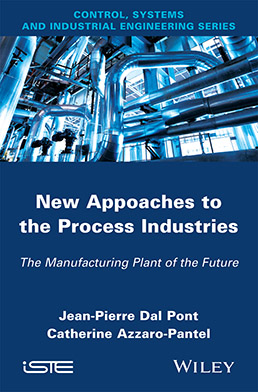
Competition from emerging and developing countries, challenges related to energy and water, the continuing increase in the global population and the obligation to be sustainable are all impacting developed countries such as the United States, France, etc. Manufacturing has been almost totally neglected by these developed countries and thus there is a strong need to review the R&D (research and development), development and industrialization processes. This is a prerequisite for maintaining and improving welfare and quality of life.
The industrialization process can be defined as the process of converting research or laboratory experiments into a physical tool capable of producing a product of value for customers of specified markets. Such a process implies knowledge of BAT (best available techniques) in chemical engineering, plant design, production competitiveness, the proper utilization of tools (toolbox concept) such as value assessment, value engineering, eco-design, LCA (lifecycle analysis), process simulation, modeling, innovation and appropriate metrics usage. This book mixes an academic approach and practices in industrial management. Manufacturing may be the new paradigm for the process industries and designing the plant of the future hinges on a good understanding of traditional process development and engineering methods. This book is intended for students, chemists, chemical engineers, production workers and all professionals of the process industries such as supply chain managers, R&D and development engineers. Its objective is to provide new systemic insights into the evolution of the problems themselves and into the methods and tools that will be required by the professional, who has to integrate new skills, capabilities and perspectives for success in transition management for the 21st Century. The authors cover in detail these mandatory issues for ensuring commercial success.
1. Project Management – Systems Engineering – the Industrialization Process.
2. Metrics for Sustainability Assessment of Chemical Processes.
3. From Preliminary Projects to Projects.
4. Analysis of the Strategy of the Enterprise and the Enterprise Strategic Plan.
5. Excellence in Manufacturing and Operations Control.
6. Innovation and Change Management.
7. Water and Energy Challenges.
8. Engineers as Key Players for Sustainability: The Role of PSE Academia.
9. Plant of the Future.
Jean-Pierre Dal Pont is President of SFGP (French Chemical Engineering Society), General Secretary of EFCE (European Federation of Chemical Engineering) Paris Office and former Vice President Industrial of Rhodia (today Solvay) in Asia Pacific.
Catherine Azzaro-Pantel is Professor at INP ENSIACET (Ecole Nationale des Ingénieurs en Arts Chimiques et Technologiques, University of Toulouse, France). Her research interests lie in the area of Process Systems Engineering with a specific focus on optimization methods for design and operation of sustainable processes and energy systems.